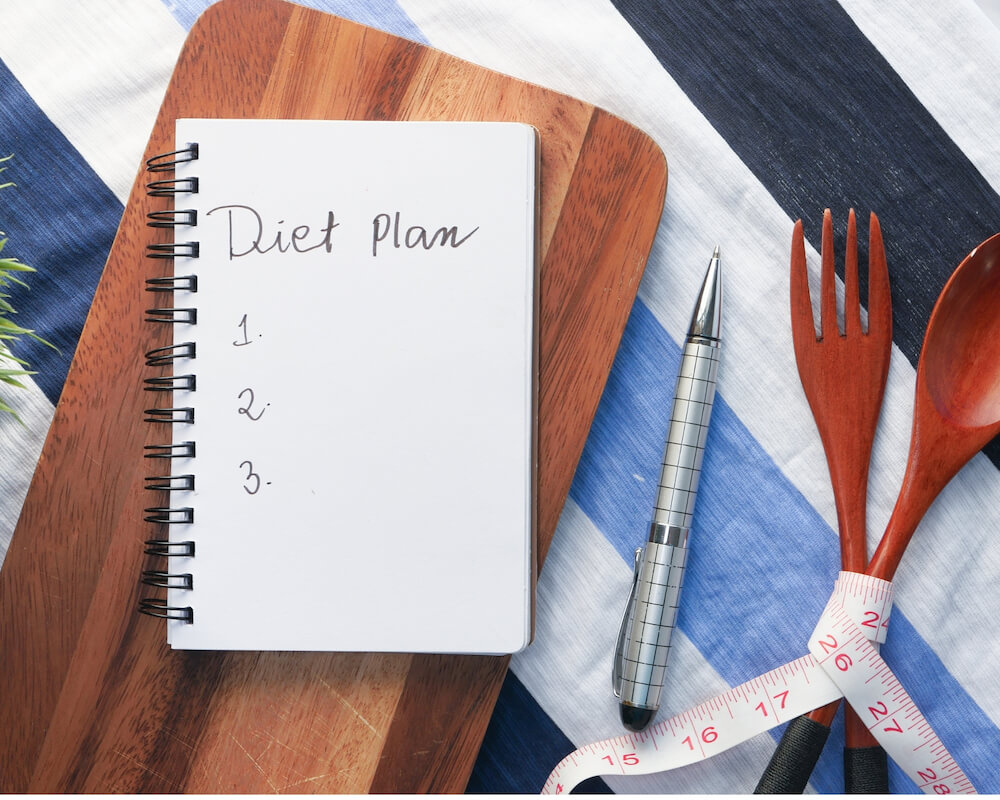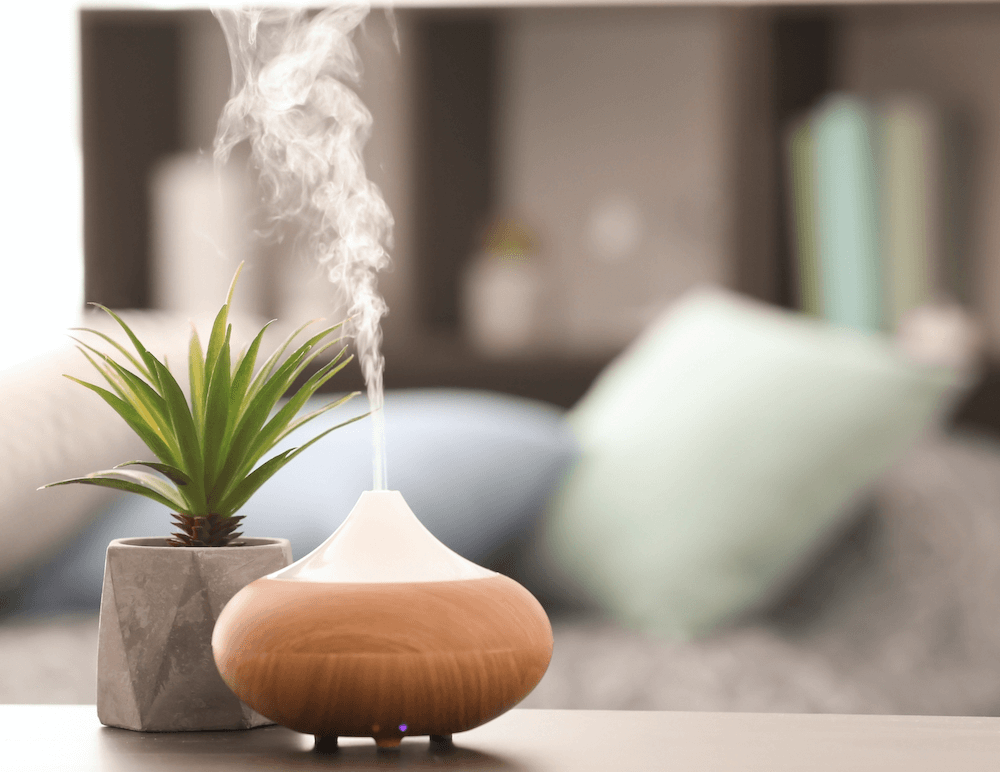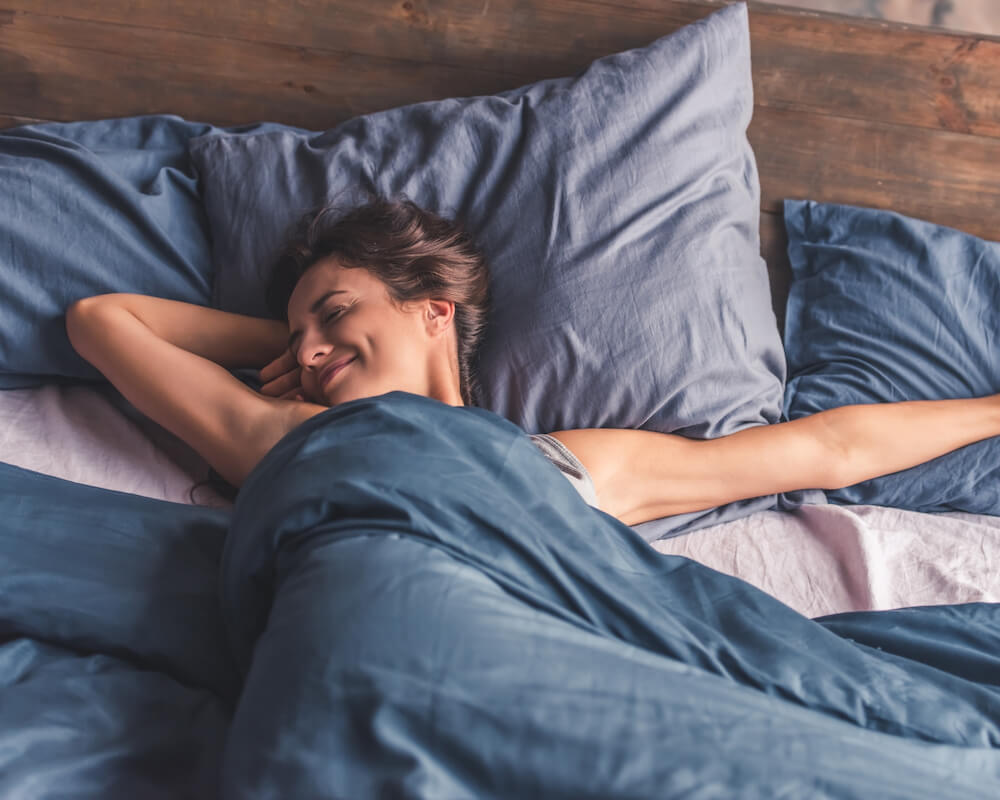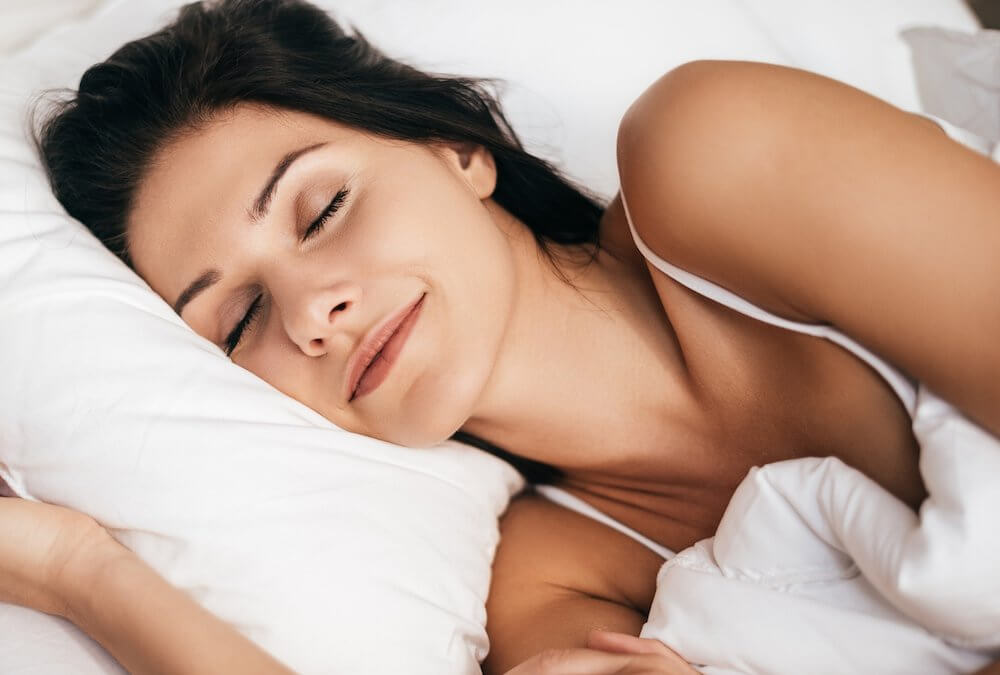Sleep is an essential human function that should be prioritized in order to maintain a healthy lifestyle. It allows the body and mind to rest, recharge, and wake up feeling refreshed. Unfortunately, not everyone is a good sleeper. Most adults need seven to nine hours of sleep per night, however, only one in three adults get the proper amount of sleep. As many people struggle to sleep at night, we’ve compiled a list of natural remedies that will help you attain a better quality sleep. Here are 6 natural remedies that will help you sleep better!
1) Break a Sweat
Did you know that exercise and sleep have a bidirectional relationship? This means that both affect one another, in which a good night’s sleep will aid in your motivation and ability to exercise the next day. Similarly, a good workout can help you sleep better at night! Studies show that moderate to vigorous exercise help improve sleep quality. Therefore, as you work to improve your sleep schedule, it’s important that you prioritize exercise to help enhance your overall quality of sleep.

2) Practice Yoga Before Bed
Yoga provides several health benefits to the human body including improved balance and flexibility, as well as a relief to back pain. Along with the promotion of body function, yoga also plays a major role in improving sleep. Studies show that practicing yoga before bed makes it easier for people to fall asleep, as well as stay asleep throughout the night. Yoga is a great option for insomniacs as it relaxes the brain and the body, which increases their overall ability to sleep at night. To gain the benefits of yoga, try taking a yoga class or experimenting with the different styles of yoga available online.
3) Make Some Tweaks to Your Diet
We all know that caffeine can significantly hinder our ability to get a good night’s sleep. That’s why, many people try to get their coffee or tea fix in the morning rather than the evening. However, caffeine is not the only part of your diet that affects your ability to sleep. If you want to get better sleep at night, consider cutting out or reducing your intake of the following foods before you get to bed:
- Sugar – high amounts of sugar have a negative effect on magnesium, which is an important nutrient in regulating sleep.
- Spicy Foods – spicy foods often raise your body’s internal temperature, making it that much harder to both fall asleep and stay asleep.
- Alcohol – studies show that people who drink large amounts of alcohol before bed are more prone to delayed sleep onset, sleep disruptions, and a decrease in sleep quality.
To give yourself a better chance of having a good night’s sleep, try consuming foods that are high in tryptophan such as milk, eggs, and turkey. These foods boost your melatonin production, which will in turn help you sleep better.

4) Try Aromatherapy
Essential oils are concentrated plant extracts that help enhance your overall wellness. Studies show that certain fragrances can have a positive effect on people’s moods, which ultimately help them attain a better quality sleep. Of the many essential oils that are available, lavender essential oils are best known for their sleep-inducing benefits. Furthermore, lavender and peppermint essential oils help to improve sleep in cardiac patients, and a blend of lavender, camomile, and neroli essential oils help to reduce anxiety and improve sleep quality for intensive care patients.
Essential oils can be used in a variety of ways. For instance, you can apply an essential roller bottle to your wrists or neck before bedtime, or you can add a few drops of essential oils to a diffuser, which will release the scent into your bedroom.

5) Minimize Evening Light and Screen Exposure
This may seem obvious, but ensuring your bedroom is nice and dark is key to getting a good night’s sleep. When you are exposed to light, your brain becomes active and alert due to the hormones that light activates within the brain. In contrast, when you are exposed to darkness, your brain becomes tired and sleepy due to the hormones that darkness activates. To mitigate light exposure within your bedroom, consider installing blackout curtains or wearing a sleep mask to bed. Sleep masks also instill comfort and create a soothing pressure that often help people fall asleep.
Additionally, you should try to turn off your electronic devices at least 30 minutes before you go to bed. Specifically, using your phone before bed can have adverse effects on your body’s ability to attain a good sleep due to your phone keeping your mind psychologically engaged. The blue light from your phone screen suppresses your melatonin and your sound notifications disrupt your REM sleep. Therefore, if you are a nighttime technology user, cut off your screen time at least 30 minutes before you go to bed and also be sure to turn off your phone notifications until you wake up in the morning. Doing so will help your brain relax at night, reduce the effects of blue light on your melatonin levels, and prevent disruptions from occurring after you have fallen asleep. This will ultimately reduce the noise caused by your electronics, and in turn, enhance your quality of sleep at night.
6) Relax with a Weighted Blanket
Do you have difficulties turning your brain off at night? Weighted blankets have increased in popularity over the years due to the effects that they have on reducing stress and anxiety, and the support they provide in getting a better night’s rest. The weight of the blanket places a light pressure on your body, which triggers nervous system responses that slow down your breathing and heart rate. Weighted blankets will also keep you from tossing and turning at night, which supports you in lying still and attaining a deep sleep.

—
We hope this blog provided you will valuable tips that will help you fall asleep, stay asleep, and attain a good night’s rest. There are many factors that can affect your ability to sleep at night, so implementing the tips above will help to improve your overall quality of sleep. Remember, sleep plays a pivotal role in your overall health and wellbeing, so be sure to prioritize sleep. If you suffer from poor sleep and are in need of additional support, our team of professionals can help find the root cause of your problem and recommend personalized solutions to help you sleep better. Contact us today to get started!
Want more lifestyle advice on how to improve your overall health and wellness? Contact our Livewell Health and Physiotherapy Kitchener (Lancaster and Driftwood), Baden, or Waterloo teams for more information and to book your next appointment. You can also reach out to us by email or social media and one of our team members would be more than happy to answer any of your questions! All of our practitioners have more tips and expert guidance to help improve the overall quality of your life.

